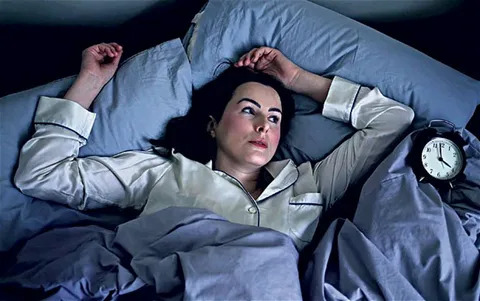Overview
Anxiety disorders are among the most prevalent mental health issues in the world, affecting millions of people and having an adverse effect on their day-to-day existence. Significant progress has been achieved in the field of anxiety medicine throughout the years, providing those with anxiety-related symptoms with new hope and better results. This article examines the development of anxiety medication, its historical background, current advancements, advantages, and factors that contribute to mental health and empowerment.
The Historical Background of Anti-Anxiety Drugs
Throughout history, anxiety has been acknowledged as a serious mental health issue, and numerous therapies and interventions have been tried to lessen its symptoms. Herbal cures, sedatives, and psychotropic chemicals were common in the early methods, though their safety and effectiveness were frequently questioned.
Herbal treatments and traditional remedies
Herbal treatments and other natural medicines were frequently employed to treat anxiety symptoms in ancient cultures. Traditional medical methods employed plants with sedative properties, such as lavender, chamomile, and valerian root.
Early Use of Pharmaceuticals
The 20th century witnessed the introduction of pharmacological treatments for anxiety, such as bromides and barbiturates. These drugs presented a high danger of dependence, addiction, and overdose even while they might cause relaxation and sleepiness.
The Development of Current Anxiety Drugs
Scientific breakthroughs, pharmacological developments, and an increased comprehension of the neurobiology of anxiety disorders have all contributed to the evolution of anxiety medications. More specialized and efficient treatment options are available because to modern drugs that are made to target particular neurotransmitter systems in the brain.
The creation of benzodiazepines
The creation of benzodiazepines, including diazepam (Valium) and chlordiazepoxide (Librium), occurred in the 1950s and 1960s. By boosting the effects of gamma-aminobutyric acid (GABA), a neurotransmitter that reduces anxiety and promotes relaxation by blocking brain activity, these drugs changed the treatment of anxiety.
The Development of SSRIs, or Selective Serotonin Reuptake Inhibitors
SSRIs, such as sertraline (Zoloft) and fluoxetine (Prozac), became well-liked as first-line therapies for anxiety disorders in the late 20th century. These drugs specifically target the brain’s serotonin reuptake, which helps to stabilize mood and lessen anxiety.
Progress in the Field of Neurobiology
Neurobiological research is still ongoing, but it has clarified how neurotransmitters like GABA, norepinephrine, and serotonin regulate anxiety. This knowledge has aided in the creation of more recent drugs that are more effective and have fewer adverse effects.
Modern Anxiety Medication Benefits
Symptom Management That Works
With the help of modern anxiety medications, symptoms such as intrusive thoughts, panic attacks, excessive worry, and bodily manifestations of anxiety can be effectively managed. People can have better quality of life and operate more efficiently in their daily lives as a result.
Enhanced Results of Treatment
By customizing treatment programs to meet the unique needs of each patient, healthcare providers can improve overall treatment outcomes and satisfaction. This is made possible by a greater variety of drug options and a better understanding of individual responses.
Diminished Adverse Reactions
When taken as prescribed, current anxiety medications frequently have fewer adverse effects and a reduced risk of reliance and tolerance than older ones. This improves their long-term appropriateness and safety profile for the treatment of anxiety disorders.
A Look at Using Anxiety Medication
Even though there are many advantages to taking and administering current anxiety drugs, there are a few things to keep in mind.
Tailored Treatment Strategies
There is no one-size-fits-all type of anxiety medicine. To create customized and successful treatment regimens, healthcare professionals must evaluate each patient’s distinct symptoms, medical history, and treatment objectives.
Observation and Succession
When taking anxiety medication, it’s crucial to have follow-up appointments and regular monitoring. This enables medical professionals to check for side effects, track the effectiveness of treatments, change dosages as necessary, and offer continuing support and direction.
Combinatin Methods
The best results from anxiety medication are frequently obtained in conjunction with stress reduction, lifestyle changes, and psychotherapy. By addressing the complex nature of anxiety disorders, this all-encompassing approach fosters long-term wellbeing.
Providing Complete Care to Empower Minds
Encouraging minds entails adopting a comprehensive strategy to mental health care in addition to offering efficient drugs.
Psychoanalysis
Treatments such as cognitive-behavioral therapy (CBT), mindfulness-based interventions, and other psychotherapies can target the underlying thought patterns, behaviors, and emotional reactions linked to anxiety in addition to medication.
Changes in Lifestyle
Regular exercise, mindfulness exercises, eating a balanced diet, getting enough sleep, and abstaining from drug abuse are all beneficial for anxiety control and general wellbeing.
Instruction and Assistance
Educating people about coping mechanisms, treatment alternatives, and anxiety disorders encourages them to actively manage their mental health. Peer networks and support groups can also provide insightful understanding and encouragement.
In summary
The development of anxiety medications is a reflection of advances in science, creativity, and anxiety problem treatment alternatives. More therapeutic options, fewer side effects, and efficient symptom control are all provided by modern pharmaceuticals. But using anxiety medications should be done so with caution, taking into account each patient’s unique needs, keeping an eye out for any adverse effects, and incorporating the medicine into thorough treatment regimens that include counseling, lifestyle changes, and continuing support. Through the adoption of a comprehensive approach to mental health treatment, we can maintain mental empowerment and improve the quality of life for individuals experiencing anxiety.

